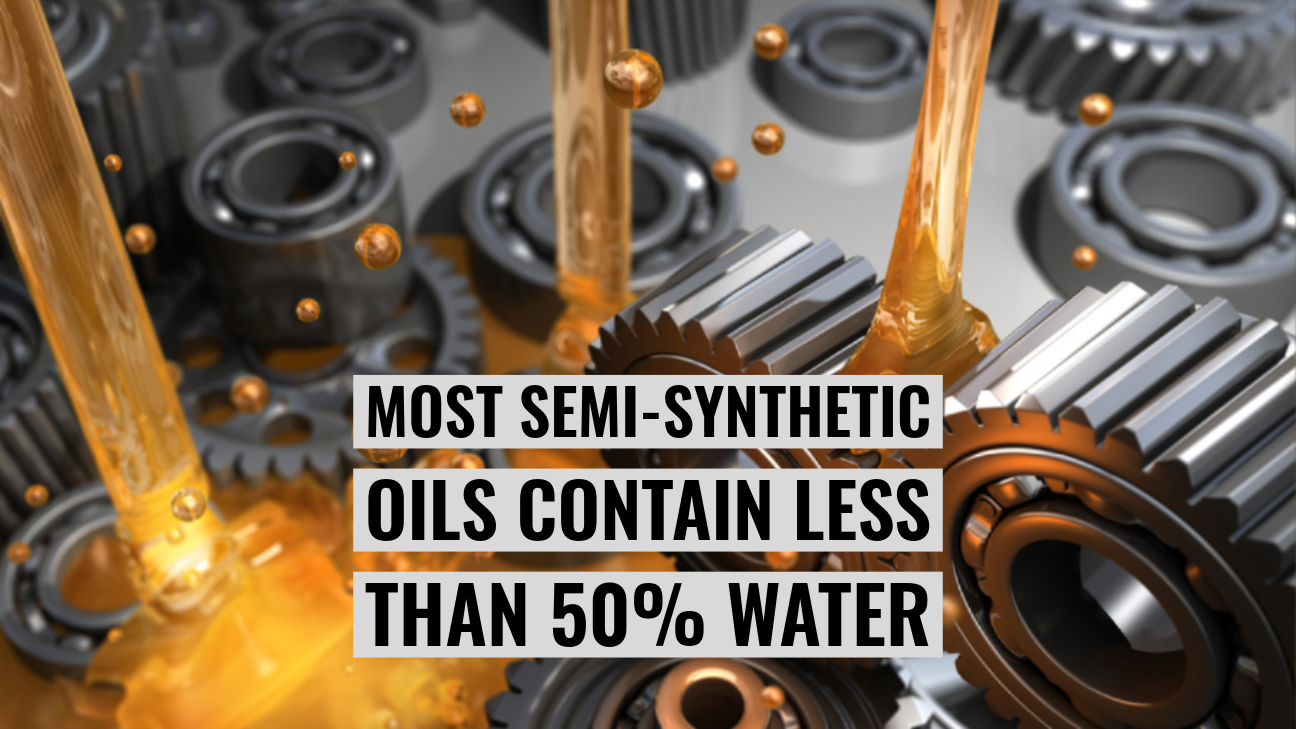
Industrial lubricants play an important part in metalworking and a substantial amount — 4 to 20 liters — is often required for metal removing. Choosing the right type of lubricant can help keep this process running smoothly while improving efficiency and overall productivity. When it comes to deciding which type lubricant is best for you, there are a couple of options to consider, and while you can speak to your lubricant distributor about the different types, knowing the basics can help you make a more informed decision.
Straight Oils
This type of mineral oil contains simple performance additives and is relatively easy to handle and manage. Straight oils tend to have a long sump life and can provide superb lubrication during the metalworking process. That said, straight oils are less effective when it comes to cooling, and they can also create issues due to misting which can create slippery conditions around the work area. If you’re considering this type, speak with your lubricant distributors about your projects and materials to see if this option would suit your needs.
Soluble Oils
Soluble oils are a combination of oil emulsifiers and additives which can create superior lubrication and cooling. This makes it a good choice for machining processes where tooling can range above 1200f and 2000 psi. While the sump life tends to be lower than semi-synthetic and synthetics, it’s cooling and lubricating capabilities make it a choice worth considering. As with the above, lubricant distributors will be able to instruct you in how to best use this oil and if it would work best for your processes.
Semi-Synthetics
Semi-synthetic is a solid middle ground between soluble oil and fully synthetic oil. It possesses excellent lubrication and can extend tool life while also having a long sump life and operator acceptance. Usually, this type of oil contains less than 50% water, and can be used in a wide range of applications. Overall, this type of oil is one of the most popular for metalworking due to its ability to be used throughout many different processes.
Synthetics
Synthetic lubricants are petroleum-free and contain additives that aid in specific functions. When mixed with water it can create a uniform liquid that is free of suspended particles. This type tends to require less maintenance than soluble options and can offer superior heat reduction when compared to other options. Synthetic lubricants are also less affected by water hardness and are less likely to foam when in use. The largest drawback to synthetics is that they tend not to lubricate as well as straight or soluble oils which can sometimes create buildup in systems.
If you are in the metalworking industry and are trying to decide which type of lubricant is right for your processes, keep in mind the above options. Using this information you can ask your lubricant distributors which options they would recommend or if the options you’ve selected would work for your industry. Using the right type of lubricating oil can help boost efficiency and production while helping your processes run smoother overall.
